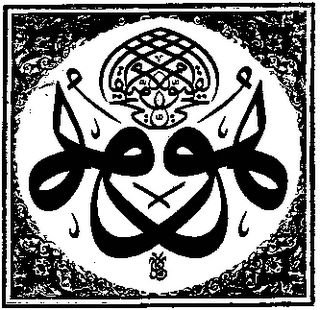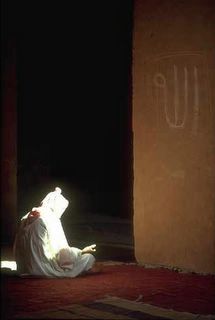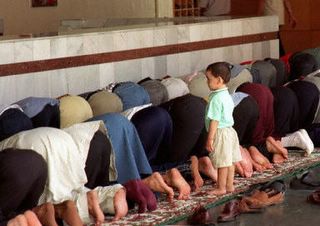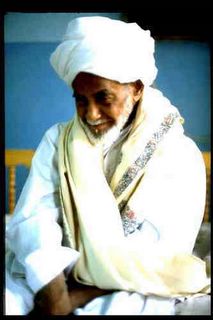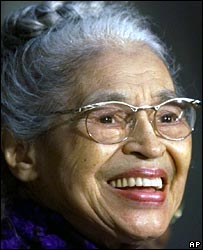National Interreligious Leadership Initiative for Peace in the Middle East
December 12, 2006
The Honorable Dr. Condoleezza Rice
Secretary of StateU.S. Department of State
2201 C Street, N.W.Washington, DC 20520
Dear Secretary Rice:
We are writing on behalf of religious leaders of twenty-nine national Jewish, Christian and Muslim organizations to ask for a meeting with you to discuss the urgent situation in the Middle East. We have also written members of Congress to encourage and support active, fair and firm leadership by the United States to promote a comprehensive and lasting Arab-Israeli-Palestinian peace. Enclosed you will find a copy of the remarkable consensus we achieved on “Arab-Israeli-Palestinian Peace: From Crisis to Hope.”
We acknowledge and appreciate your personal commitment to the creation of a viable, independent, and democratic Palestinian state alongside the state of Israel, with security and peace for both peoples, and the crucial role you played in negotiations to reach an agreement on access to and from Gaza after the Israeli unilateral withdrawal (cf. our letter, 11/20/05).
Our statement comes at time when the ceasefire between Israel and the Palestinians raises hope for restarting negotiations and in the wake of the Baker-Hamilton Report that supports renewed efforts for a comprehensive Arab-Israeli-Palestinian peace as essential for achieving U.S. goals in the Middle East.
His Eminence Cardinal Theodore McCarrick expressed our present hopes very well when he acknowledged at the meeting that led to our new interreligious consensus, “We gather at a time of crisis in the Middle East. But times of crisis can also become opportunities for change.” The events and suffering in Gaza, Lebanon and Israel demonstrate once again that there is no such thing as a safe, stable status quo in the Arab-Israeli-Palestinian conflict, and that there is no military solution to the conflicts. The only solution is a negotiated one based on U.N. Security Council Resolutions, realistic compromises, and monitored security arrangements with international guarantees.
In the aftermath of the war in Lebanon and in light of the ongoing crisis in Gaza, there is a new urgency for achieving an effective ceasefire and returning to the path of negotiations among Palestinians, Israelis and neighboring Arab states. This urgency is shared by European and other world leaders. While Palestinian and Israeli leaders have essential roles, U.S. leadership is crucial to halting the violence, and restarting and successfully completing Israeli-Palestinian and Israeli-Arab negotiations for peace.
The principles and practical ideas found in the Road Map, model peace agreements and earlier Israeli-Palestinian, Israeli-Syrian and Israeli-Lebanese negotiations provide important evidence that peace is possible. They help to define the reciprocal steps that will be necessary to achieve a just peace and they offer outlines of what could be accepted by majorities on all sides.
What is most needed now is a renewed commitment by the United States to provide active, creative and determined leadership, in coordination with the Quartet, as a top priority of U.S. foreign policy. Whatever develops in terms of a possible change of course for U.S. policy in Iraq, we believe a commitment by the Administration, with the support of Congress, to actively reengage in pursuing Arab-Israeli-Palestinian peace is essential and will have positive reverberations in the region and around the world.
As members of the National Interreligious Leadership Initiative we are committed to working with the Administration and with Congress to support active, fair and firm U.S. leadership to help Israelis, Palestinians and the Arab states achieve a just peace. We commit ourselves to building public support for peace with justice for all in the region.
We look forward to receiving your response to our united appeal for a meeting to discuss this urgent matter.
Respectfully,
Christian Leaders:
His Eminence, Theodore Cardinal McCarrick, Archdiocese of Washington*His Eminence, William Cardinal Keeler, Archbishop of Baltimore*Most Reverend William Skylstad, President, United States Conference of Catholic Bishops*His Eminence, Archbishop Demetrios, Primate, Greek Orthodox Church in America*His Eminence, Archbishop Khajag Barsamian, Primate, Armenian Apostolic Church in America*Bishop Mark Hanson, Presiding Bishop, Evangelical Lutheran Church in America*Most Rev. Dr. Katharine Jefferts Schori, Presiding Bishop Episcopal Church*John H. Thomas, General Minister & President, United Church of Christ*The Rev. Dr. Sharon Watkins, General Minister, President, Christian Churches (Disciples of Christ)*The Reverend Clifton Kirkpatrick, Stated Clerk, Presbyterian Church (USA)*Ann B. Sherer, Bishop, The United Methodist Church*The Reverend Michael E. Livingston, President, National Council of Churches USA*The Reverend John M. Buchanan, Editor and Publisher, Christian Century*Richard J. Mouw, President, Fuller Theological Seminary*The Reverend Leighton Ford, President, Leighton Ford Ministries*David Neff, Editor and Vice-President, Christianity Today*
Jewish Leaders:
Rabbi Harry K. Danziger, President, Central Conference of American Rabbis*Rabbi Paul Menitoff, Executive Vice President Emeritus, Central Conference of American Rabbis*Rabbi Eric Yoffie, President, Union for Reform Judaism*Rabbi David Saperstein, Director, Religious Action Center of Reform Judaism*Rabbi Jerome M. Epstein, United Synagogue of Conservative Judaism*Rabbi Elliot Dorff, Rector, University of Judaism*Dr. Carl Sheingold, Executive Vice President, Jewish Reconstructionist Federation*Rabbi Brant Rosen, President, Reconstructionist Rabbinical Association*Rabbi Amy Small, Past President, Reconstructionist Rabbinical Association*Rabbi Peter Knobel, Member, Council Parliament of World Religions*Rabbi Alvin M. Sugarman, Vice President, A Different Future*Rabbi Merle S. Singer, Rabbi Emeritus, Temple Beth El, Boca Raton, Florida*
Muslim Leaders:
Dr. Sayyid Muhammad Syeed, National Director, Islamic Society of North America*Imam Mohammed ibn Hagmagid, Vice President, Islamic Society of North America*Imam Feisal Abdul Rauf, Founder, American Society for Muslim Advancement (ASMA)*Imam Yahya Hendi, Chaplain, Georgetown University*Dawud Assad, President Emeritus, Council of Mosques, USA*Iftekhar A. Hai, Founding Director, United Muslims of America*
 The BARRIERS, that people continue to build, divide, discriminate and separate persons and communities on the basis of beliefs, cultures and ethnicities...
The BARRIERS, that people continue to build, divide, discriminate and separate persons and communities on the basis of beliefs, cultures and ethnicities...










